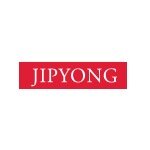Best Wrongful Termination Lawyers in Jung-gu
Share your needs with us, get contacted by law firms.
Free. Takes 2 min.
List of the best lawyers in Jung-gu, South Korea
About Wrongful Termination Law in Jung-gu, South Korea
Wrongful termination in Jung-gu, South Korea, involves the unlawful dismissal of an employee in violation of employment contracts or labor laws. The legal framework governing employment relationships in South Korea is primarily established under the Labor Standards Act. This act ensures minimum labor standards and provides protection against unfair dismissal. Wrongful termination cases often arise when an employee is dismissed without just cause or without following appropriate procedures.
Why You May Need a Lawyer
Seeking legal assistance in wrongful termination cases can be crucial for several reasons:
- Understanding Rights: A lawyer can help clarify your rights and protections under South Korean employment laws, ensuring you are aware of your legal standing.
- Filing Claims: The process for filing a wrongful termination claim can be complex. An attorney can guide you through this process, ensuring all necessary documentation is properly prepared and filed.
- Negotiations: Legal representation can aid in negotiating settlements or reinstatements with former employers, potentially avoiding lengthy court procedures.
- Legal Representation: If your case goes to court, an experienced lawyer can present your case effectively, maximizing your chances of a favorable outcome.
Local Laws Overview
In Jung-gu, like the rest of South Korea, key aspects of wrongful termination law include:
- Just Cause Requirement: Employers must have a legitimate reason for termination, such as misconduct or poor performance.
- Advance Notice: Employers are generally required to provide a 30-day notice or payment in lieu to employees before termination.
- Reinstatement or Compensation: Wrongfully terminated employees may be eligible for reinstatement or financial compensation if the dismissal is deemed unlawful.
- Employee Protections: Specific groups such as pregnant women or union members receive additional protections from dismissal under South Korean law.
Frequently Asked Questions
What constitutes wrongful termination in South Korea?
Wrongful termination occurs when an employee is dismissed without just cause or in violation of employment contracts and labor laws.
Can employees challenge an unjust dismissal?
Yes, employees can challenge their dismissal by filing a complaint with the Ministry of Employment and Labor or pursuing legal action in court.
What is the time limit for filing a wrongful termination claim?
The statute of limitations for filing a wrongful termination claim in South Korea is generally three years from the date of termination.
Are there exceptions to the termination notice requirement?
Yes, exceptions may apply in cases of serious misconduct where immediate termination is justified without notice.
What role does the Labor Relations Commission play?
The Labor Relations Commission can mediate disputes, provide arbitration, and make determinations on wrongful termination claims.
Is severance pay mandatory for all terminated employees?
Employees who have worked for at least one year are entitled to severance pay equal to at least 30 days of average wages for each year worked.
What steps should be taken if an employee suspects wrongful termination?
Employees should collect all relevant employment documents, seek legal advice, and consider filing a complaint with the Ministry of Employment and Labor.
Can temporary workers claim wrongful termination?
Yes, temporary workers can claim wrongful termination if their dismissal violates the terms of their contract or employment laws.
Can an employer appeal a decision made by the Labor Relations Commission?
Both employers and employees can appeal decisions through the court system if they disagree with the commission's determination.
Are there legal protections for whistleblowers facing termination?
South Korean law provides additional protections for whistleblowers to prevent retaliatory termination based on their disclosures.
Additional Resources
For further assistance, consider reaching out to the following resources:
- Ministry of Employment and Labor: Provides guidance and processes complaints related to employment disputes.
- National Human Rights Commission of Korea: Offers support and education for issues related to employment rights violations.
- Korean Bar Association: Can help you find legal professionals specializing in labor law and wrongful termination.
- Local legal aid clinics: Offer free or low-cost legal advice for individuals facing employment disputes.
Next Steps
If you believe you are a victim of wrongful termination, consider the following steps:
- Document Everything: Keep meticulous records of emails, contracts, performance appraisals, and any communications related to your termination.
- Seek Legal Advice: Consult with a lawyer who specializes in employment law to explore your options and develop a strategy.
- File a Complaint: Submit a complaint to the Ministry of Employment and Labor to initiate a formal investigation into your termination.
- Pursue Legal Action: If necessary, be prepared to take your case to court to seek justice and appropriate compensation.
Lawzana helps you find the best lawyers and law firms in Jung-gu through a curated and pre-screened list of qualified legal professionals. Our platform offers rankings and detailed profiles of attorneys and law firms, allowing you to compare based on practice areas, including Wrongful Termination, experience, and client feedback.
Each profile includes a description of the firm's areas of practice, client reviews, team members and partners, year of establishment, spoken languages, office locations, contact information, social media presence, and any published articles or resources. Most firms on our platform speak English and are experienced in both local and international legal matters.
Get a quote from top-rated law firms in Jung-gu, South Korea — quickly, securely, and without unnecessary hassle.
Disclaimer:
The information provided on this page is for general informational purposes only and does not constitute legal advice. While we strive to ensure the accuracy and relevance of the content, legal information may change over time, and interpretations of the law can vary. You should always consult with a qualified legal professional for advice specific to your situation.
We disclaim all liability for actions taken or not taken based on the content of this page. If you believe any information is incorrect or outdated, please contact us, and we will review and update it where appropriate.








